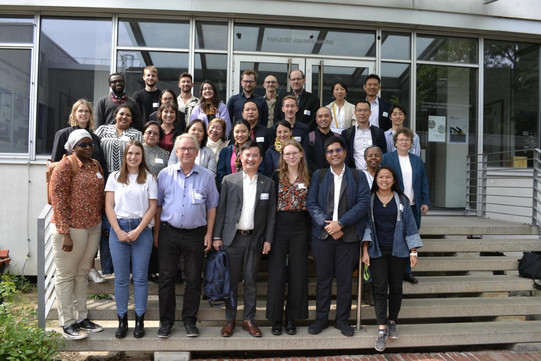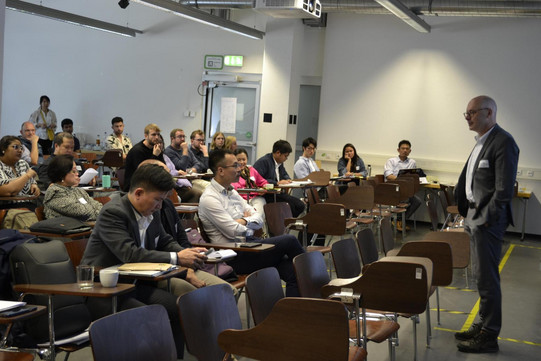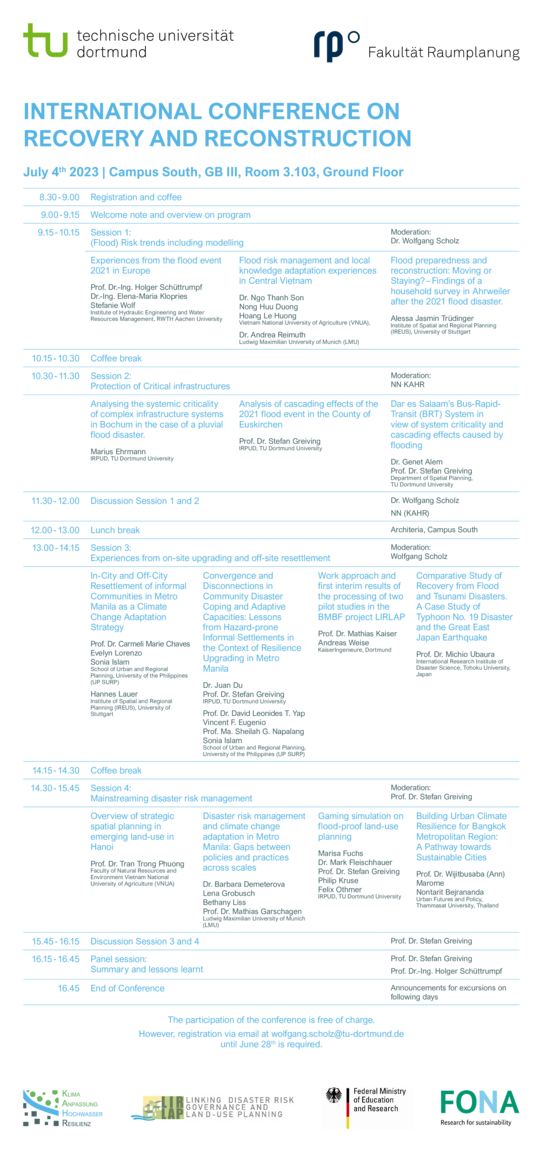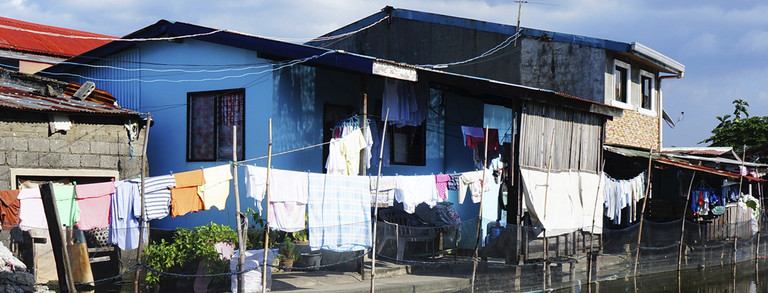Adapting reconstruction to natural events such as floods and inundations.
The BMBF-funded project LIRLAP (Linking Disaster Risk Governance and Land-Use Planning) investigates urban risk governance and risk-based land use planning, so to reduce inhabitants’ socio-economic vulnerability and enhance community adaptive capacity for resilience building. LIRLAP project focuses particularly on those disaster-prone informal settlements in the Philippines, Vietnam, and Thailand by collaborating with local residents to establish locally viable climate-resilient upgrading and resettlement strategies.
The LIRLAP research partner Ngo Thanh Son from the Vietnam National University of Agriculture (VNUA) presented in his lecture what structural upgrading solutions are focused on in case resettlement is not possible to protect property and livelihood in case of flooding. For instance, it has proven effective to build houses on stilts or to construct the first floor so that it can be flooded through in the event of a flood. In this way, the property can be protected by a stable roof, which can also be used to evacuate the residents. The best possible protection is all the more important here since most of the local population has no insurance.
For the Philippine team of LIRLAP, Prof. Dr. Ma. Sheilah G. Napalang focussed on disaster coping and adaptive capacities of local communities and presented lessons from hazard-prone informal settlements in the context of resilience upgrading in Metro Manila. It is based on extensive fieldwork of the LIRLAP team and revealed the importance of local leadership, formal and non-formal community support systems and social cohesion.
In contrast to many parts of Asia, natural disasters are less frequent in Germany, but they are on the rise, partly due to the effects of climate change. The 2021 floods in Rhineland-Palatinate and North Rhine-Westphalia caused billions of euros in damage. When it comes to rebuilding houses and infrastructure, it is clear how different the approaches are in the various countries, emphasized Prof. Dr. Holger Schüttrumpf, RWTH Aachen and representative for the KAHR project. In Germany, for example, resettlement hardly plays a role in contrast to Japan, Vietnam, and the Philippines. Everyone agreed that even if reconstruction is implemented differently at the local level, the aim everywhere is to make the buildings and infrastructure as resilient as possible to future natural events during reconstruction.


International Conference on recovery and reconstruction
As a joint event of the LIRLAP (Linking disaster risk governance and land-use planning, see https://lirlap.raumplanung.tu-dortmund.de) and the KAHR (Climate Adaptation, Flood, Resilience, see https://www.hochwasser-kahr.de/index.php/enlir) projects, an international conference on recovery and reconstruction will take place at TU Dortmund University on July 4th, 2023. Both projects are funded by the German Federal Ministry of Education and Research (BMBF).
Aim is to discuss research results, lessons learned and successful interventions from hazard events, especially flooding. Topics are sharing of problem-solving expertise, approaches of hazard and risk modelling, urban development and mainstreaming approaches and strategies for upgrading and resettlement as well as mainstreaming of disaster risk management at all policy levels.
Now the final conference program is fixed. Many exciting presentations are planned - and in between there is always time for discussions. We would therefore be very happy to welcome more participants. Please register via Wolfgang Scholz until June 28th at (wolfgang.scholz@tu-dortmund.de).






